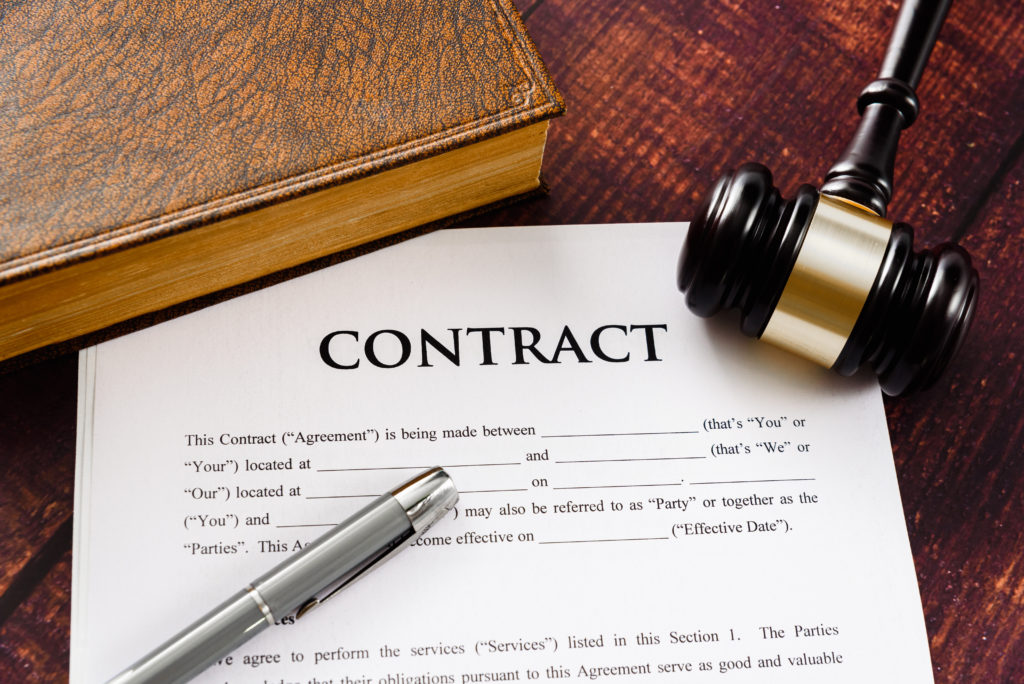
What Does a Contract Lawyer Do?
What Does a Contract Lawyer Do?

What Does a Contract Lawyer Do?
Contracts are legally enforceable agreements that are a part of day-to-day business operations for companies of all sizes. Contracts should not be written or signed haphazardly, especially when your business and livelihood are on the line. It’s critical to understand the legal consequences of what you’re entering into and ensure that the contracts created by your business are legally sound. That is where contract lawyers play an essential role. So what does a contract lawyer do, exactly?
A contract lawyer’s tasks and responsibilities include contract drafting, contract reviewing, and ensuring the interests of their clients are protected. Contract attorneys are familiar with contract requirements and how to ensure that they will be enforceable. Certain legal features and wording are frequently required in these sorts of contracts. A contract lawyer may assist a corporation or individual in including the terms essential for their commercial requirements, as well as any legal terminology that the individual may not be aware of. A contract lawyer may also be able to recommend a litigation attorney who can represent a client when a contract is breached.
Contracts for Startup Businesses
Starting a business has various components, from developing your initial idea to hiring your first employee, and each stage may present new obstacles. A contract lawyer can assist you in determining which contracts are required between you, your partners, and your company. Even if you are the only proprietor of your company, you may require agreements between you and your company to protect your limited responsibility. Third parties you wish to do business with may demand business agreements in order to move forward as well. A contract lawyer can ensure that the contracts you create and sign are the appropriate ones for your company and needs.
Ongoing Business Contracts
Contracts are a necessary element of running a business. Contracts aid in the development of both your company and your commercial connections. Documents like your Employment and Independent Contractor Agreements, as well as Nondisclosure Agreements, are critical to legal compliance. Because you will use these papers frequently, it is critical that they be done correctly the first time and reviewed annually to ensure that they continue to satisfy your business’s demands and current legal requirements. Master Service Agreements, Vendor Agreements, Lease Agreements, and Manufacturing Agreements are also contracts you may encounter or need to draft during your time as a business owner.
Specialty Agreements
There are some agreements that may need to be reviewed once a year or even less frequently, but if you lapse, you may cause a bit of trouble for yourself. It’s all too easy to forget about your software license agreements, online privacy policies, and website terms of service. A contract attorney will make sure you’ve taken all of the required measures, and if there happens to be a website dispute or software licensing violation, they can refer you to a litigator who can represent you. Intern Agreements and Professional Engagement Agreements are two other types of specialty agreements you could encounter as a small business owner.
How Much Does A Contract Lawyer Cost?
The cost of a contract attorney varies depending on the attorney’s experience and the specifics of the case. While most attorneys charge hourly, you may find some attorneys charge by the contract. Contract attorneys that are drafting or negotiating contracts may cost a different hourly amount than an attorney that does litigation regarding contract breaches. Most attorneys can give you a range of fees for different contract issues so that you have an idea of how much things will cost before you hire an attorney.
Contract Law at the Law Offices of E.C. Lewis
If you have contracts that need to be reviewed, you’re disputing a contract, or need to address a potential breach of contract, don’t hesitate to reach out to schedule a consultation. Elizabeth Lewis is an experienced contract law attorney who continues to help businesses all over the Denver metro area, Colorado, North Carolina, throughout the United States, and internationally with their contract law needs. Schedule online now or call 720-258-6647!



